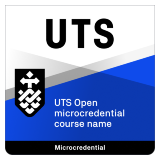In the assessment task, participants will work in teams of two or three to apply basic data engineering principles to a case study scenario. The goal is to illustrate how data engineering infrastructure and strategies covered in the course can be used to help organisations derive greater value from their data, for example, through the development of new data-driven products, better business decision-making or improved data management capabilities.
Participants work in small teams, however each participant will be assessed individually on their work in the task.
Participants individually produce a five-minute video centred on the provided case study, applying principles learned during the course. To accompany the video, participants are required to submit a one-page summary of their individual learning experience. Each participant in the team should present a different aspect of the case study work, so that the team’s videos are complementary and can be combined to form a larger, overall presentation. The team videos should collectively demonstrate the participants’ technical knowledge of data engineering infrastructure platforms, reflection upon practical skills covered, knowledge of key issues such as data quality, security, monitoring and governance and an overarching appreciation of how these elements work together to benefit an organisation and its various stakeholders. A more detailed marking rubric will be provided on the LMS.
After submitting the combined team video, participants will be invited to a live Q&A session where they can engage with academic staff and ask questions about their video. The Q&A session should be around 10-15 minutes per team.
Participants will also be asked to asynchronously peer review one other team’s video presentation and provide feedback.
In order to pass the microcredential, participants must achieve an overall mark of 50% or more.


















